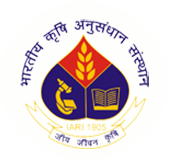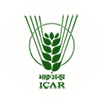Genetic modification and food quality : a down to earth analysis / Robert Blair, Faculity of Land & Food Systems, University of British Columbia, MacMilian Building, 2357 Main Mall, Vancouver, Canda V6TIZ4, Joe M. Regenstein, Department of Food Science, College of Agriculture and Life Science, Cornell University, Stocking Hall, Ithaca, NY 14853-7201 USA..
Material type: TextPublisher: Hoboken : Wiley, 2015Description: 1 online resourceContent type:
TextPublisher: Hoboken : Wiley, 2015Description: 1 online resourceContent type: - text
- computer
- online resource
- 9781118823620 (pdf)
- 1118823621 (pdf)
- 9781118823613 (epub)
- 1118823613 (epub)
- 9781118823644
- 1118823648
- 111875641X
- 9781118756416
- 664 23
- TP248.65.F66
- TEC012000
"The development of recombinant DNA methods has changed the face of the food industry over the last 50 years. Crops which have been genetically modified are being cultivated in more and more countries and this process is likely to accelerate as desirable traits are identified and transferred to appropriate organisms, and they are cleared by the regulatory authorities. However, the technique has its critics who claim that modification of the genome of the plant (or animal) in this way may pose unknown and unacceptable risks to the human consumer. Genetic Modification and Food Quality: A Down to Earth Analysis is the first comprehensive text on how GM production methods influence the quality of foods and feeds, based on a complete and unbiased assessment of the scientific findings. It presents a balanced analysis of the benefits and drawbacks of gene-modified food sources in the human diet. Chapters approach the topic with regard to different food types such as cereal grains, oilseed crops, vegetables, fish and animal products. Assessing the nutritive value as well as the health and safety of GMO foods, this book is a reference for anyone working in the food production industry and will also be of an interest to NGOs, trade associations and consumers who are looking for an objective, balanced study of this contentious issue"-- Provided by publisher.
"This book will present a scientific analysis of how genetic engineering of plants and other food sources affects the quality and safety of food for humans"-- Provided by publisher.
Includes bibliographical references and index.
Machine generated contents note: CHAPTER 1: Introduction References CHAPTER 2: International regulations North America USA Canada Europe Russia Australasia Australia/New Zealand China India Japan Republic of Korea Mexico Africa South Africa South America Argentina Brazil Chile Food labelling Australia/New Zealand Canada Europe Japan Russia USA References CHAPTER 3: Microorganisms Bacteria Biochemicals, additives Milk Products, probiotics Fungi Yeasts Baking Brewing (beer-making) Wine-making Cheese-making Summary References CHAPTER 4: Cereals Maize (Zea mays L.) Safety aspects Nutritional and organoleptic qualities Other cereal crops Rice (Oryza sativa) Wheat (Triticum aestivum) Summary References CHAPTER 5: Oilseed crops Soyabeans (soybeans) Safety aspects Nutritional and organoleptic qualities Canola (rapeseed) Safety aspects Nutritional and organoleptic qualities Cottonseed (Gossypium hirsutum L.) Safety aspects Nutritional and organoleptic qualities Summary References CHAPTER 6: Fruits and vegetables Fruit Cantaloupe (Cucumis melo) Papaya (Carica papaya L.) Apples (Malus domestica) Plums (Prunus domestica L.) Vegetables Lucerne (alfalfa) (Medicago sativa L.) Potato (Solanum tuberosum L.) Squash (Curcurbita pepo L.) Sugar beet (Beta vulgaris L.) Sweet corn (Zea mays L.) Tomatoes (Lycopersicon esculentum L.) Summary References CHAPTER 7: Fish and other animals Fish Research findings Pigs Summary References CHAPTER 8: Animal products Research findings Effects of feed processing Effects of digestion in the GI tract and possible transfer of transgenic DNA into edible tissues Summary References CHAPTER 9: Overall assessment of the safety of GM foods and feeds Microorganisms Cereal crops Oilseed crops Fruits and vegetables Animals and animal products Chemical residues Consensus Factors that mitigate possible harmful effects from foods derived from GM crops Summary References CHAPTER 10: Overall assessment of the nutritional value of GM foods and feeds Microorganisms Cereal crops Oilseed crops Soyabeans Canola Cottonseed Fruits and vegetables Lucerne (alfalfa) Papaya Potatoes Squash Sugar beet Sweet corn Tomatoes Animal products Reviews Summary References CHAPTER 11: Addressing consumer issues Surveys International Europe North America Africa Australia/New Zealand China Addressing the issues effectively The informed consumer Labelling Summary References CHAPTER 12: Overall conclusions Summary References .
Description based on print version record and CIP data provided by publisher.
Chapter 1. Introduction -- Chapter 2. International regulations -- Chapter 3. Microorganisms -- Chapter 4. Cereals -- Chapter 5. Oilseed crops -- Chapter 6. Fruits and vegetables -- Chapter 7. Fish and other animals -- Chapter 8. Animal products -- Chapter 9. Overall assessment of the safety of GM foods and feeds -- Chapter 10. Overall assessment of the nutritional value of GM foods and feeds -- Chapter 11. Addressing consumer issues -- Chapter 12. Overall conclusions.


There are no comments on this title.